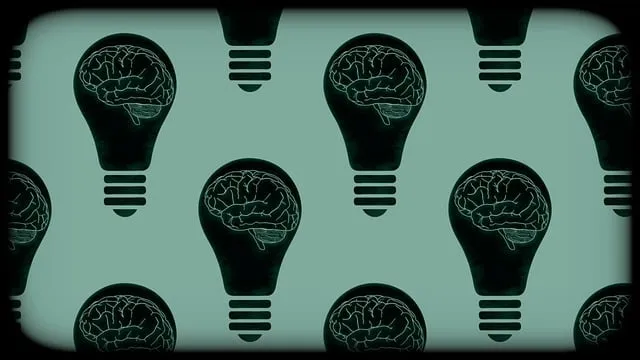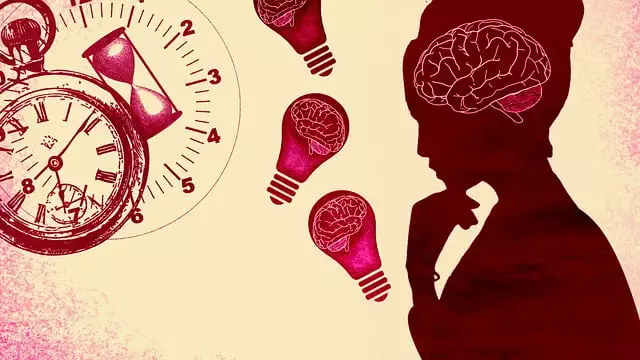Kaiser Permanente mental health centers in Golden combat stigma around mental illness through comprehensive initiatives, including journaling exercises, social skills training, therapy, and community outreach. Their success, reflected in positive reviews, lies in open dialogues, accessible resources, workshops, and partnerships, normalizing mental health challenges and reducing judgment. They measure impact using KPIs and patient feedback, integrating self-awareness exercises into treatment to empower individuals and promote inclusive care.
Mental illness stigma remains a significant barrier to effective mental healthcare. This article explores efforts to reduce this stigmatization, focusing on the initiatives of organizations like Kaiser Permanente. We examine how entities such as Kaiser Permanente mental health centers play a crucial role in fostering understanding through education and community engagement. By reviewing their strategies and approaches, we gain insights into successful stigma reduction tactics, with a special focus on the impact of Golden-based Kaiser Permanente’s programs.
- Understanding Stigma and its Impact on Mental Health Care
- The Role of Organizations Like Kaiser Permanente in Reducing Stigma
- Effective Strategies for Community Engagement and Education
- Measuring Success and Continuing the Conversation: A Review of Kaiser Permanente's Approach
Understanding Stigma and its Impact on Mental Health Care

Stigma surrounding mental illness is a significant barrier to individuals seeking help and accessing effective care. It often manifests as negative attitudes, stereotypes, and discrimination, creating a culture where those struggling with their mental health feel ashamed and afraid to reach out. This can have detrimental effects on an individual’s willingness to seek treatment, leading to delayed access to much-needed support. At Kaiser Permanente mental health centers, reviewed by Golden locals, efforts are being made to combat this issue through various initiatives aimed at fostering understanding and empathy.
One such approach is through Mental Wellness Journaling Exercise Guidance, where individuals are encouraged to express their thoughts and emotions in a safe and non-judgmental space. This practice helps reduce internalized stigma as it promotes self-awareness and personal growth. Additionally, Social Skills Training programs play a crucial role in challenging societal norms and stereotypes by educating communities on the signs of mental illness and providing tools to offer support. By integrating Mental Health Awareness into everyday conversations, these centers strive to normalize discussions around mental wellness, ultimately leading to more accessible and inclusive care for all.
The Role of Organizations Like Kaiser Permanente in Reducing Stigma

Organizations like Kaiser Permanente play a pivotal role in reducing mental illness stigma through their comprehensive approach to mental health care. As one of the leading healthcare providers, Kaiser Permanente mental health centers, particularly those in Golden, have been at the forefront of advocating for mental wellness. They offer not just treatment but also educational resources and support groups that foster understanding and empathy within communities. By integrating services like therapy, counseling, and community outreach programs, these centers create an environment where individuals can openly discuss their experiences without fear of judgment.
Kaiser Permanente’s commitment to mental health extends beyond its walls through initiatives aimed at destigmatization. They promote self-care routine development for better mental health, encouraging emotional regulation techniques that empower individuals to take charge of their well-being. Positive feedback from Kaiser Permanente mental health center reviews in Golden underscores the impact of these efforts, fostering a sense of confidence boosting among those seeking support. Through such proactive measures, Kaiser Permanente continues to revolutionize mental health care, ensuring that help is accessible and perceived positively by all.
Effective Strategies for Community Engagement and Education

Effective strategies for community engagement and education play a pivotal role in reducing the stigma surrounding mental illness, as highlighted by Kaiser Permanente mental health center reviews Golden. By fostering open dialogues and providing accessible resources, organizations like Kaiser Permanente can dispel misconceptions and promote understanding. Community events, workshops, and awareness campaigns focused on mental wellness serve as powerful tools to engage diverse audiences. These initiatives often include educational sessions that teach coping skills development and self-esteem improvement techniques, empowering individuals to support themselves and their peers.
Through partnerships with local schools, community centers, and faith-based organizations, mental health advocates can reach a broader spectrum of people. Tailoring these programs to meet the unique needs of different communities ensures relevance and encourages participation. By integrating personal stories and sharing success tales from those who have overcome mental health challenges, these engagement efforts humanize mental illness, fostering empathy and reducing fear or judgment.
Measuring Success and Continuing the Conversation: A Review of Kaiser Permanente's Approach

Measuring success is a pivotal aspect of any stigma reduction effort, and Kaiser Permanente’s approach in their mental health centers reviews Golden offers valuable insights. They employ a multifaceted strategy, combining quantitative data analysis with qualitative feedback from patients and staff. By tracking key performance indicators (KPIs) such as patient satisfaction rates, treatment adherence, and relapse prevention, they can objectively assess the impact of their programs.
In addition to these metrics, Kaiser Permanente encourages open dialogue through focus groups, surveys, and individual discussions. This ongoing conversation facilitates a deeper understanding of patients’ experiences, identifies areas for improvement, and ensures that mental health policy analysis and advocacy are guided by real-world insights. Self-awareness exercises are also integrated into treatment plans, empowering individuals to challenge stereotypes and promote positive attitudes towards mental illness within their communities.
Stigma reduction efforts, such as those employed by organizations like Kaiser Permanente in their mental health centers across the Golden area, play a pivotal role in improving access to care and enhancing the overall well-being of individuals facing mental health challenges. By combining education, community engagement, and innovative approaches, these initiatives foster an environment where mental illness is met with understanding and support rather than fear or judgment. The success of Kaiser Permanente’s programs, as reviewed, highlights the potential for widespread adoption of effective strategies to combat stigma and revolutionize mental healthcare accessibility. Continued dialogue and collaboration are essential to sustain momentum and ensure that everyone in need receives the compassionate care they deserve.






